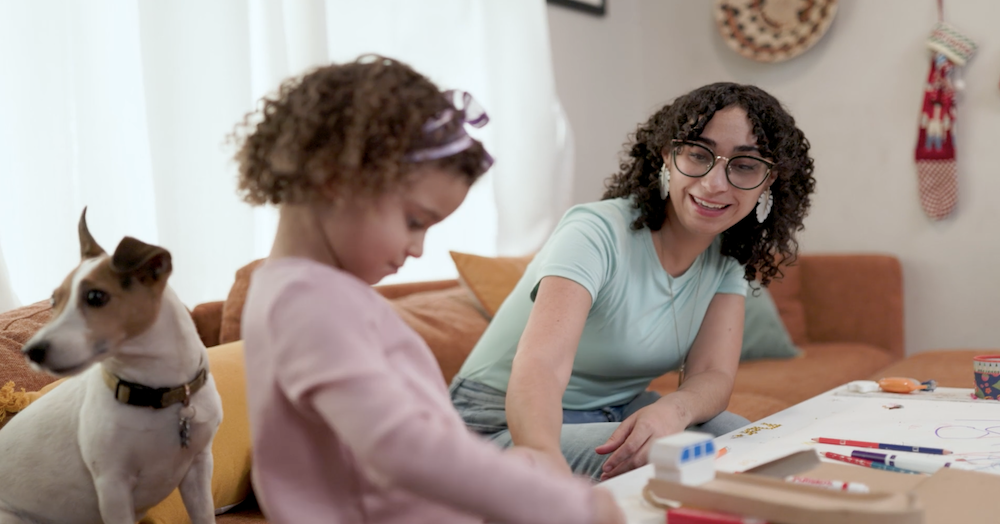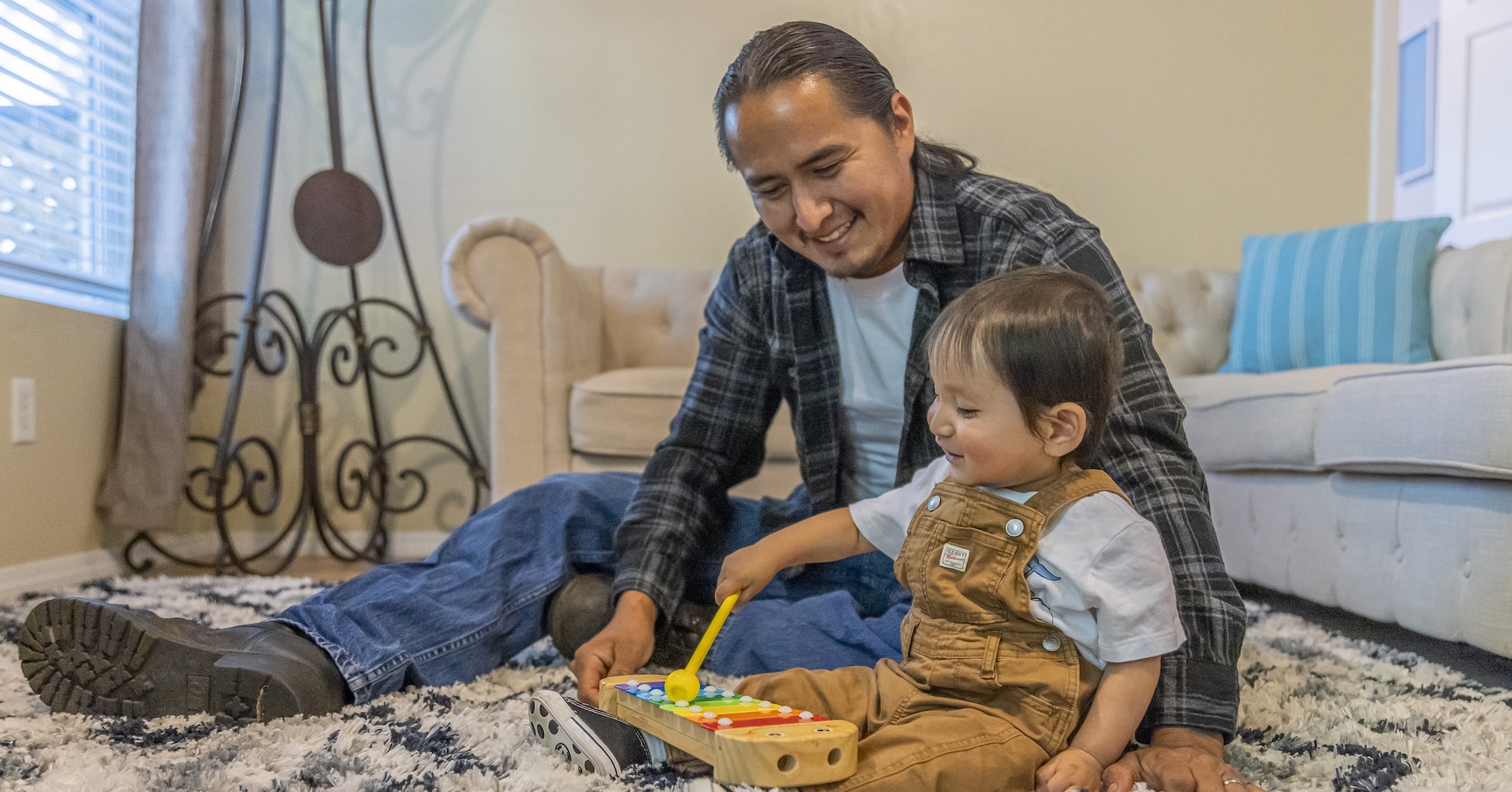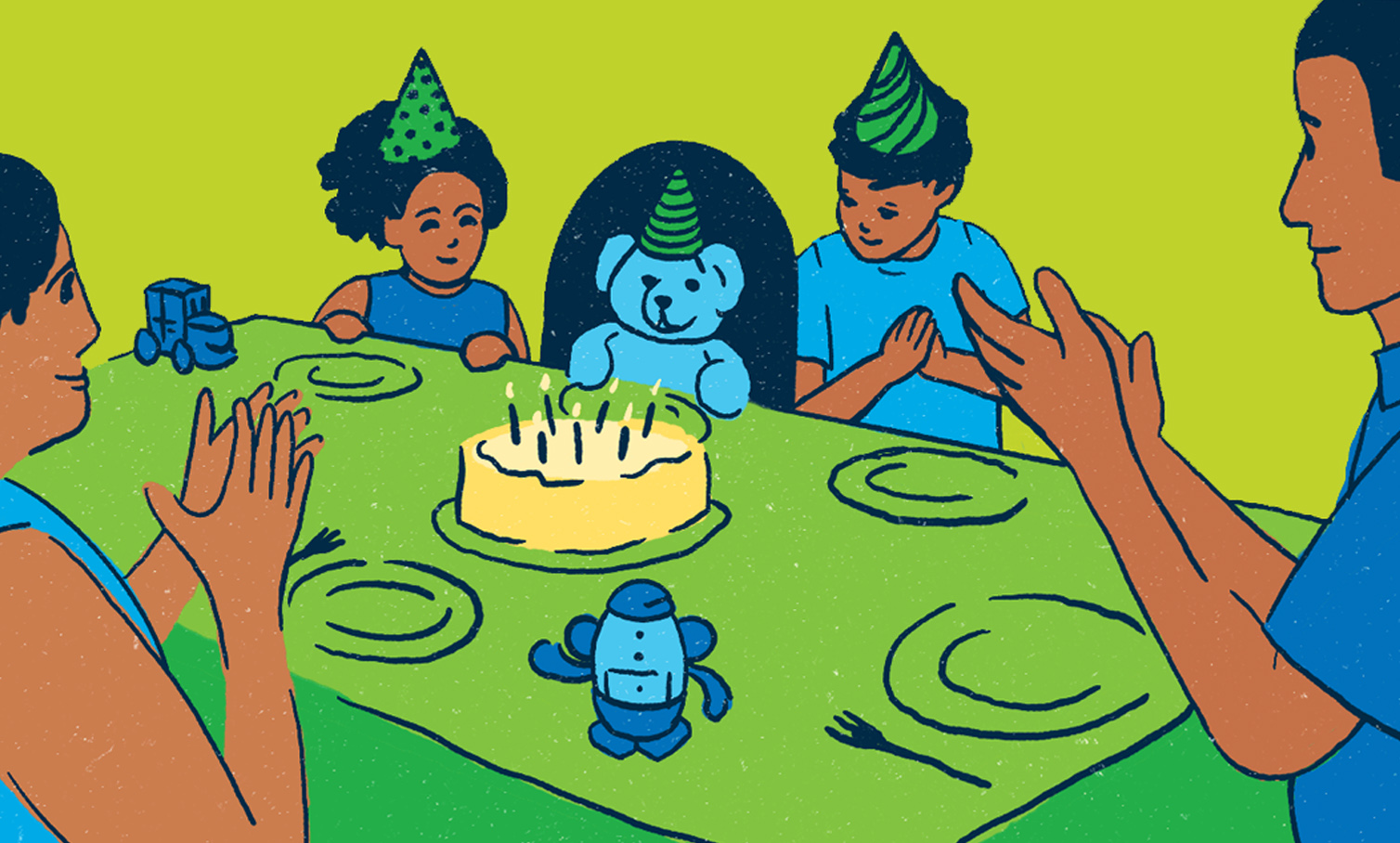
These days, you might be spending more time at home with your young children than ever before. And the days can pile up. Try not to put too much pressure on yourself to keep your child constantly entertained—that’s impossible. Just do your best to find times to be close and connect throughout the day.
Here are some fun at-home activities to do with your child that can help them learn and grow through play.
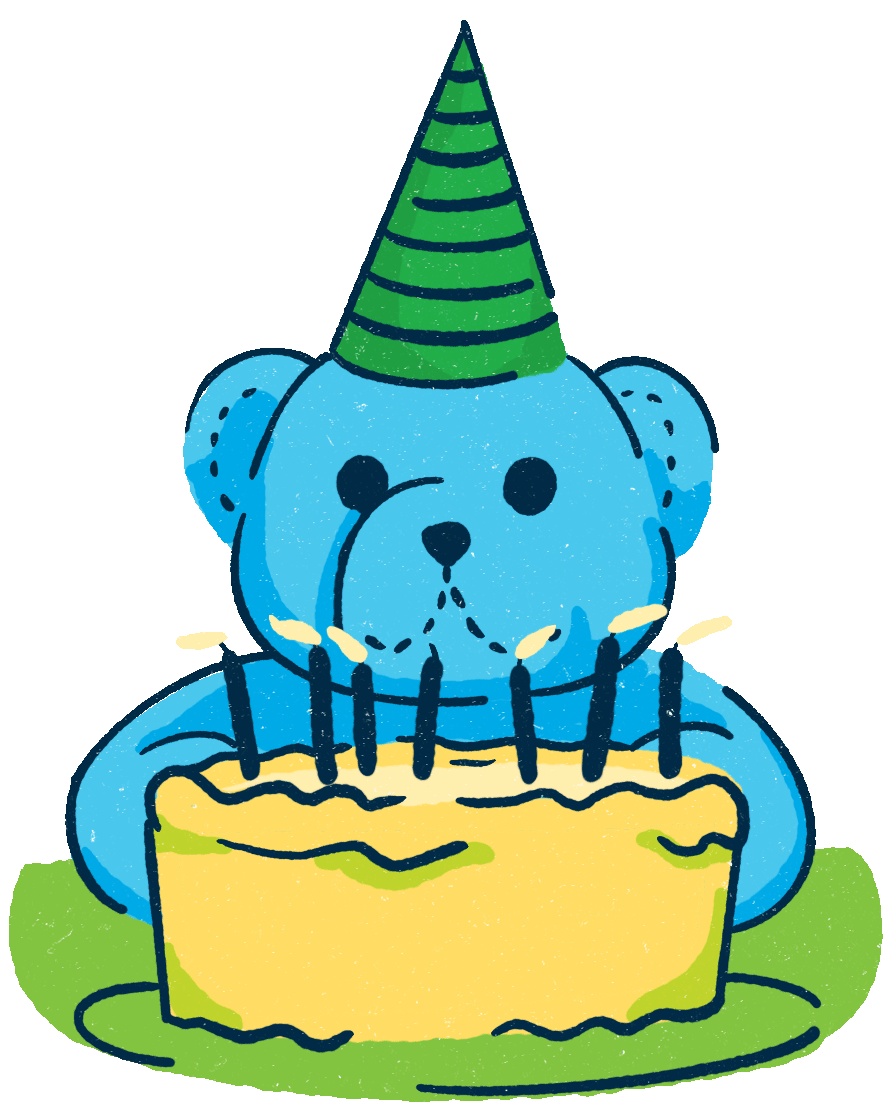
Host a birthday party for a special stuffed animal or toy.
Help your child make a special toy or stuffed animal’s day extra special by throwing it a birthday party. Talk with your little one about ideas for a theme and make decorations (placemats, paper plates, etc.) and food (real or imaginary). Then invite other toys and family members to the celebration. You can extend the pretend play as long and far as your child wants, with games and presents, but singing “Happy Birthday” to Teddy or Baby Doll or Buzz Lightyear is a must.
Playing with dolls and stuffed animals inspires pretend play, which is an important way children learn and grow. When your little one imitates taking care of their inanimate friends – feeding, rocking, singing and talking to them — they’re developing the social-emotional skills that are the basis of forming positive relationships with other children. This kind of play also supports their cognitive development — their ability to think, make connections and process information. How they play and what they say during pretend play are signs of what they’re learning and understanding about the world around them as well as their developing creativity and ability to communicate.
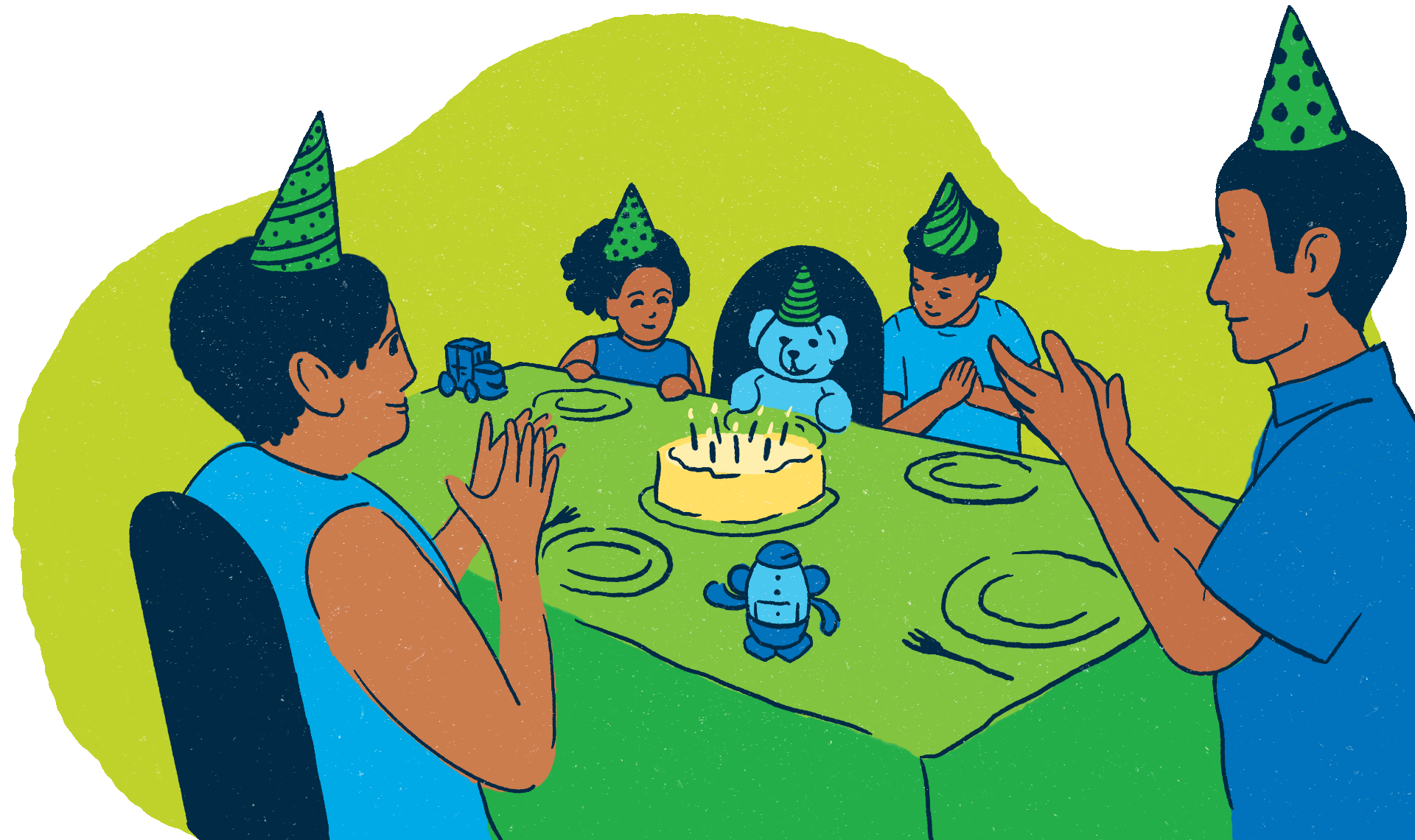
Create and decorate paper covers for your child’s favorite books.
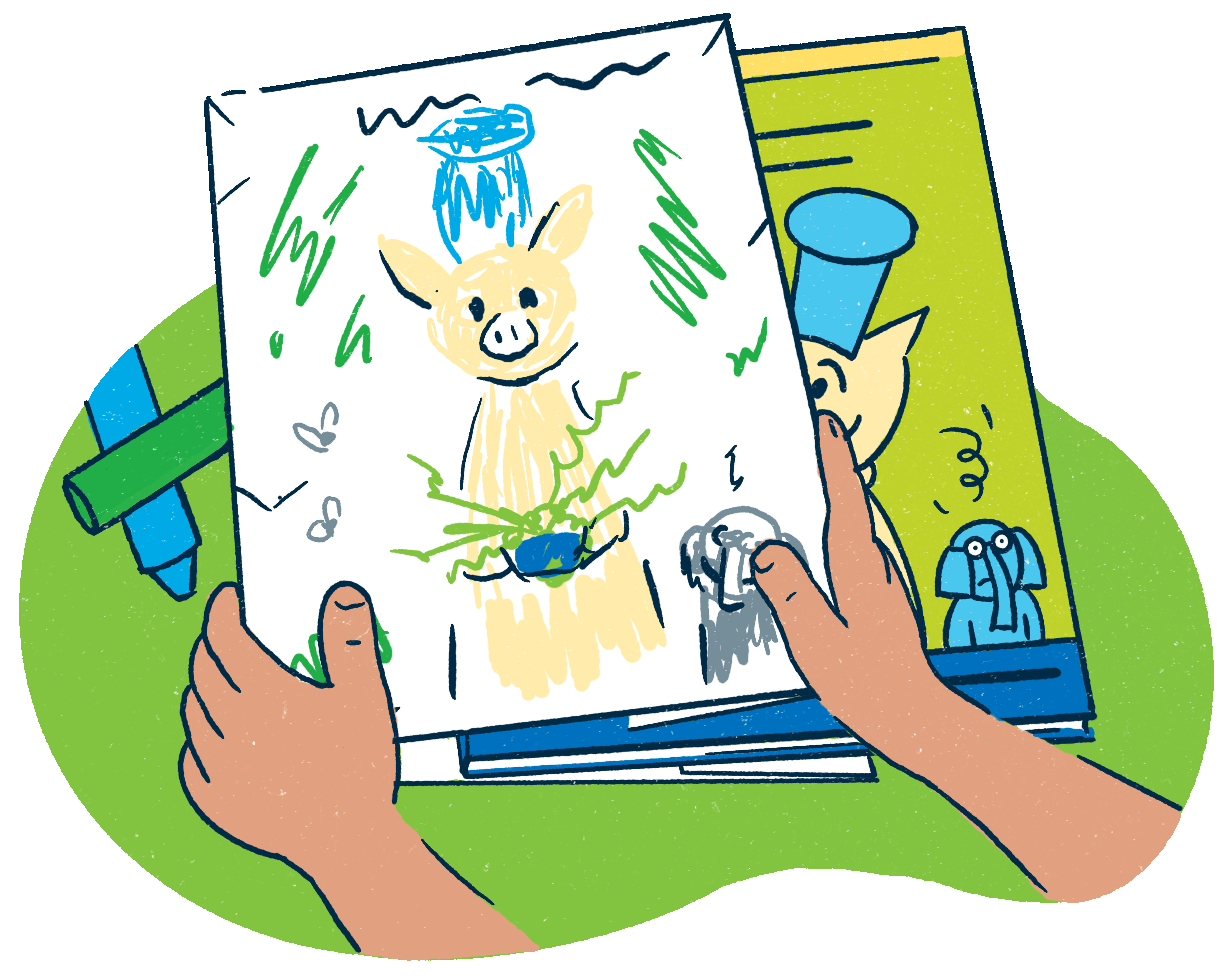
Your child probably has a few favorite books (that you’ve probably read with them a few hundred times). If you have some paper bags or construction paper lying around, you and your child can make book covers for them. There are lots of videos that show you how to make one; your child can help. Then, turn them loose to decorate the book cover with their own artwork. Encourage them to draw their favorite character or scene from the story or just use their imagination. Thick, chunky crayons are great for little hands, and remember that scribbling and drawing is the first step in learning to write. And you might enjoy making your own cover, too. A few minutes drawing and coloring can help lower your own stress and anxiety, which is very important these days.
Sharing books with your baby, toddler or preschooler is a great way to help them build the language and early literacy skills they’ll need to learn to read later on. Your young child is showing they’re developing literacy when they bring you a favorite book to read, look at and turn the pages, point and name the people and things they see. Same for when they draw or make scribbles and shapes on paper, which helps them develop their fine motor skills, too.
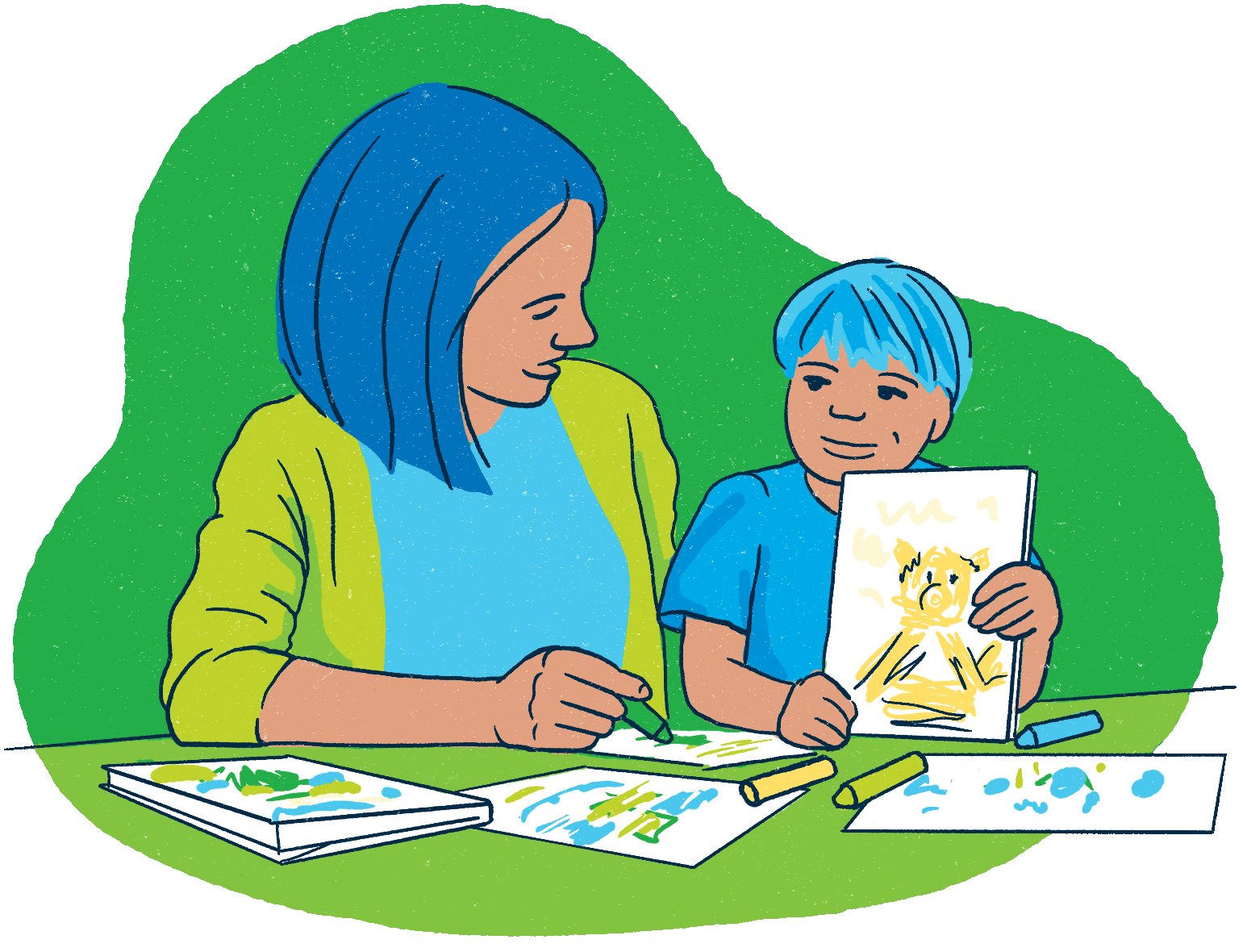
Have an indoor treasure or scavenger hunt.
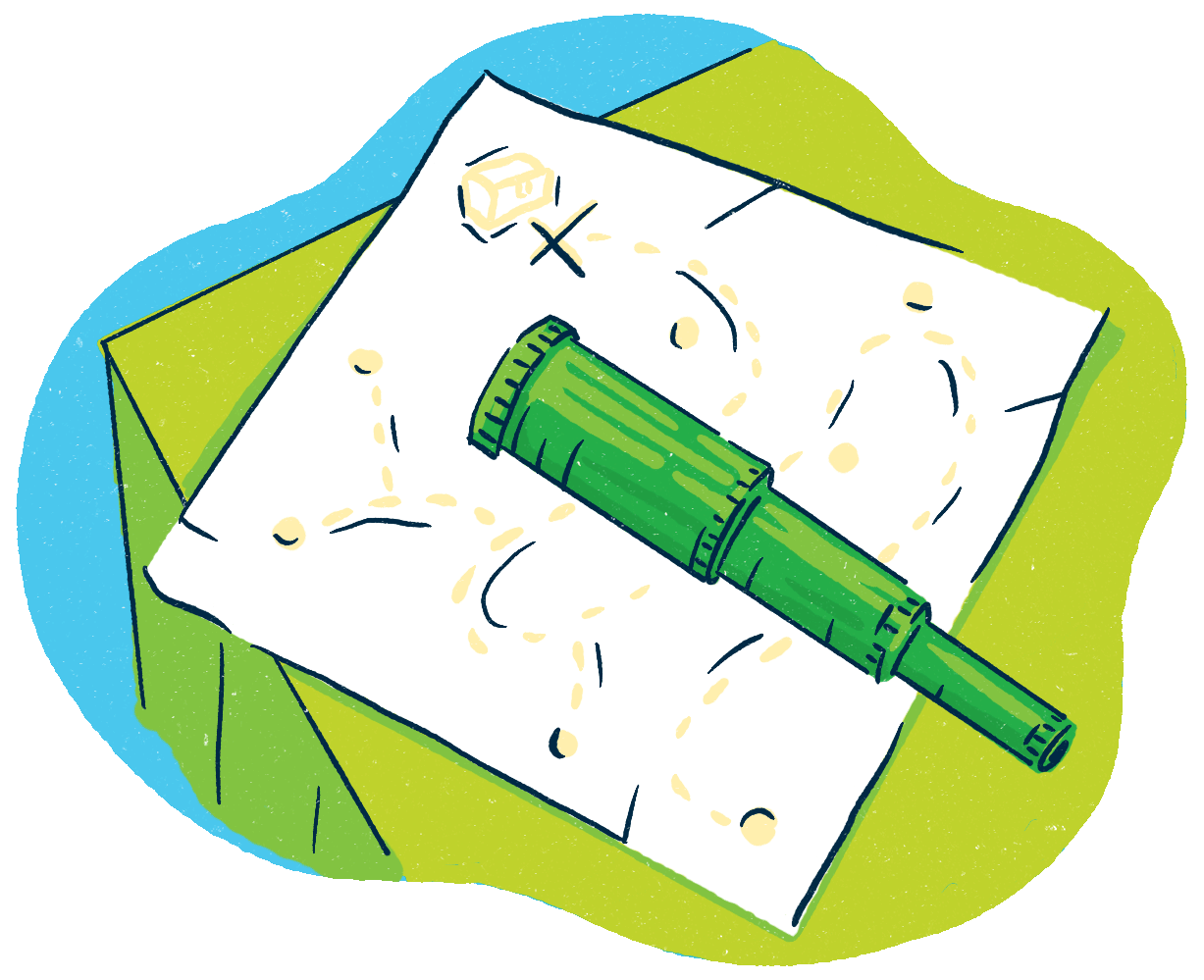 Create a series of clues on paper for your child or children to follow from one to the next. You can pick a theme, like pirates or detectives, and decorate the clues. End with a final treasure or prize as a reward.
Create a series of clues on paper for your child or children to follow from one to the next. You can pick a theme, like pirates or detectives, and decorate the clues. End with a final treasure or prize as a reward.
If you don’t have the time to plan everything out in advance, you can challenge your little one with an indoor scavenger hunt. Have them try to find things of a certain color or things that start with each letter of the alphabet.
This kind of play supports your child’s cognitive development — their ability to think and make connections — by promoting exploration, reasoning, problem-solving and memory. When they need help, you can respond best by listening and observing to determine what kind of help they need. Not too much, but not so little that they get too frustrated. And like any at-home activities you do with your child, things will go best if you follow their signals to decide whether to keep going, change things up or end it altogether.
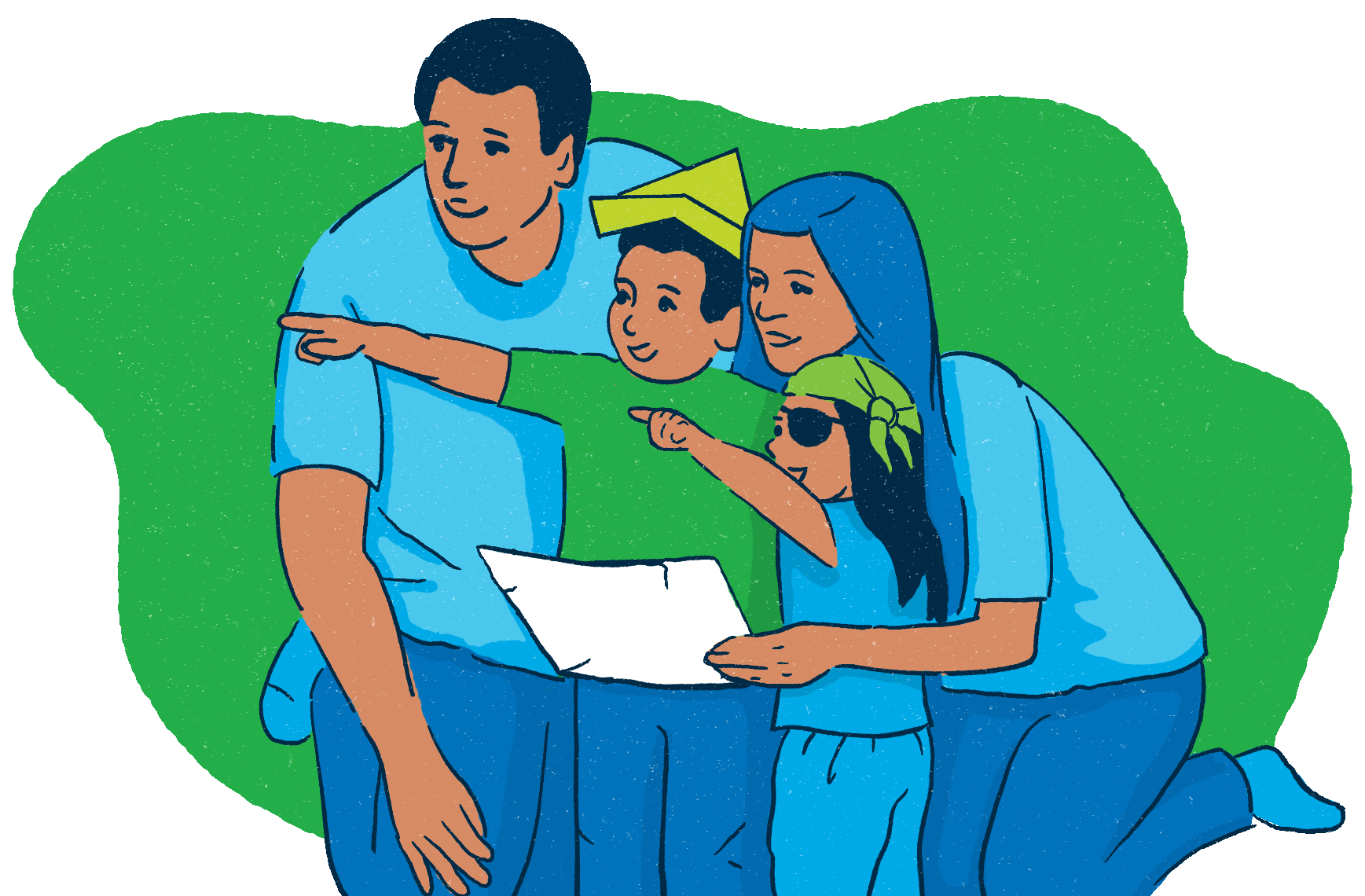
Find more at-home activities for young children.
Our partners have many more great suggestions for things to do at home to help your young child have fun and keep learning:





